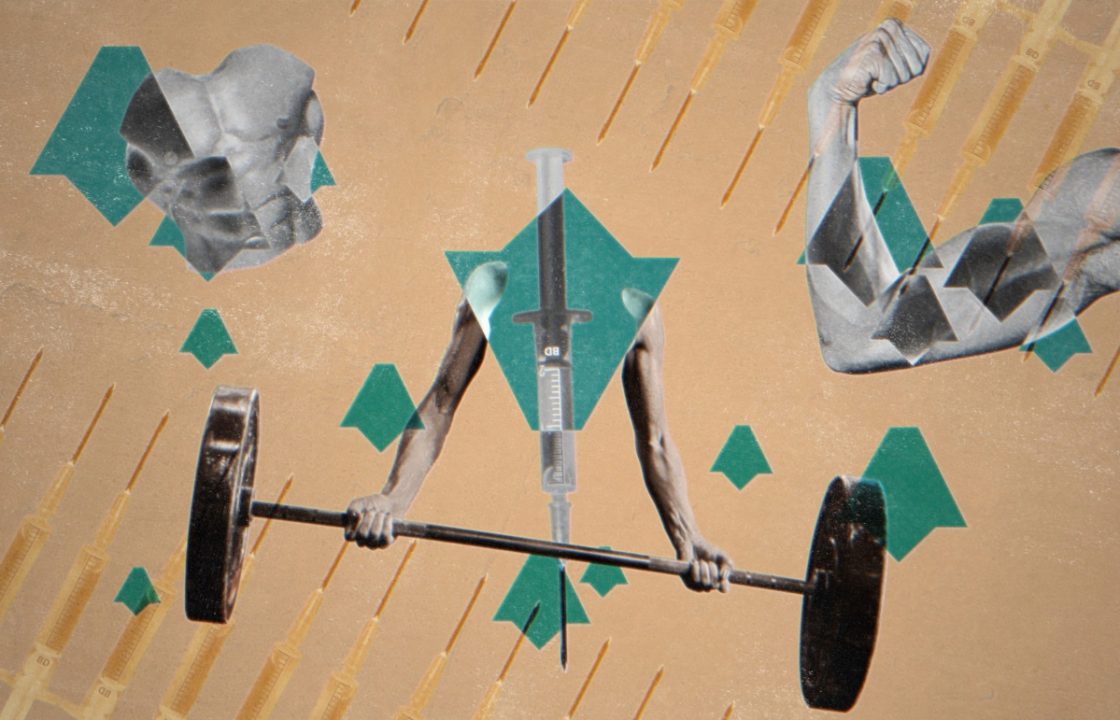A worrying rise in steroid use among Scots believed to be fuelled by social media has prompted a campaign to raise awareness of the drug’s health dangers.
Used by bodybuilders for decades, industry experts say social media has seen image and performance-enhancing drugs (IPEDS) – such as steroids, human growth hormones and peptides – pushed into the mainstream.
Anabolic steroids help super-charge the body’s muscle-building capabilities, burn fat, and reduce recovery time between workouts.
They have surged in popularity in recent times, particularly among men.
While there are no Scottish figures, it is estimated around one million use image and performance-enhancing drugs across the UK, with the number likely under-reported.
But experts warn the long-term consequences of self-dosing anabolic steroids over several years are just beginning to be understood due to the lack of clinical trials.
Steroids can cause a range of health problems such as heart complications, liver damage and blood clots, with some of the most commonly seen effects including acne and gynecomastia (the development of female-shaped breast tissue).

It has also been linked to an increase in psychological responses such as aggression, violence and mood swings.
Campaigners also warn a growing number of young men and women are being targeted on social media to take steroids and growth hormones to change their physical appearance – with little or no understanding of the risks involved.
STV News has been granted special access to one of just two performance enhancing drug clinics in Scotland.
The facility – not far from Glasgow city centre – is on the frontline of tackling Scotland’s complex relationship with steroids.
Drug expert John Campbell manages needle exchanges across 70 sites at NHS Greater Glasgow and Clyde.
Set up in 2009, the clinic offers injecting equipment, blood tests and information sessions to help regulate clients’ dosages. It also encourages reduction of use and, in some cases, cessation.
Mr Campbell told STV News: “The clinic was set up to keep people as safe as possible and provide a specialist service.
“The side effects are very easy to predict – we see them every week.
“Steroid acne, which can be incredibly debilitating for people, across the chest and back; water retention and the development of female shaped breast tissue, which occurs when high doses of testosterone is converted into oestrogen.

“It’s about educating people as much as we can. If they choose to do so, they can go into this with eyes open but also an outlet to come back and present to us if something doesn’t feel right.”
Anabolic steroids are a class C drug, meaning it is legal to have them for personal use.
Most oil-based steroids available in the UK have been made in underground labs, often in unsanitary conditions such as homes or garages
The vials in the clinic look convincing, even featuring holograms and scratch panels.
“Safety is a really difficult thing to pin down when the vast majority of products our clients have access to are produced in an underground lab,” John added.
“It means it may not be the substance in the vial that is advertised on the label.”

Mr Campbell said the majority of complications happen after a course of steroids – with a cycle typically lasting up to 12 weeks.
A steroid crash is when a person has not begun producing their own natural testosterone and can last for several months before the process kickstarts again – and it can take up to a year for normal sperm production to return.
“It’s a really difficult place for people to be. They often have no energy, feeling very down, bordering on depression.
“They may have no sex drive at all or if they do (they may) suffer from erectile dysfunction. That can last for many months, way over a year.”
‘Some clients have been using it for the last two decades’
But it’s not just young men seeking to achieve their ideal physique.
There are now far more individuals aged between 35 and 45 accessing a needle exchange for any form of IPED than under 25s last year.
While most use them for image-enhancing purposes, a growing number of men aged over 35 are using these drugs to replace testosterone, also known as self-directed testosterone replacement therapy (TRT).
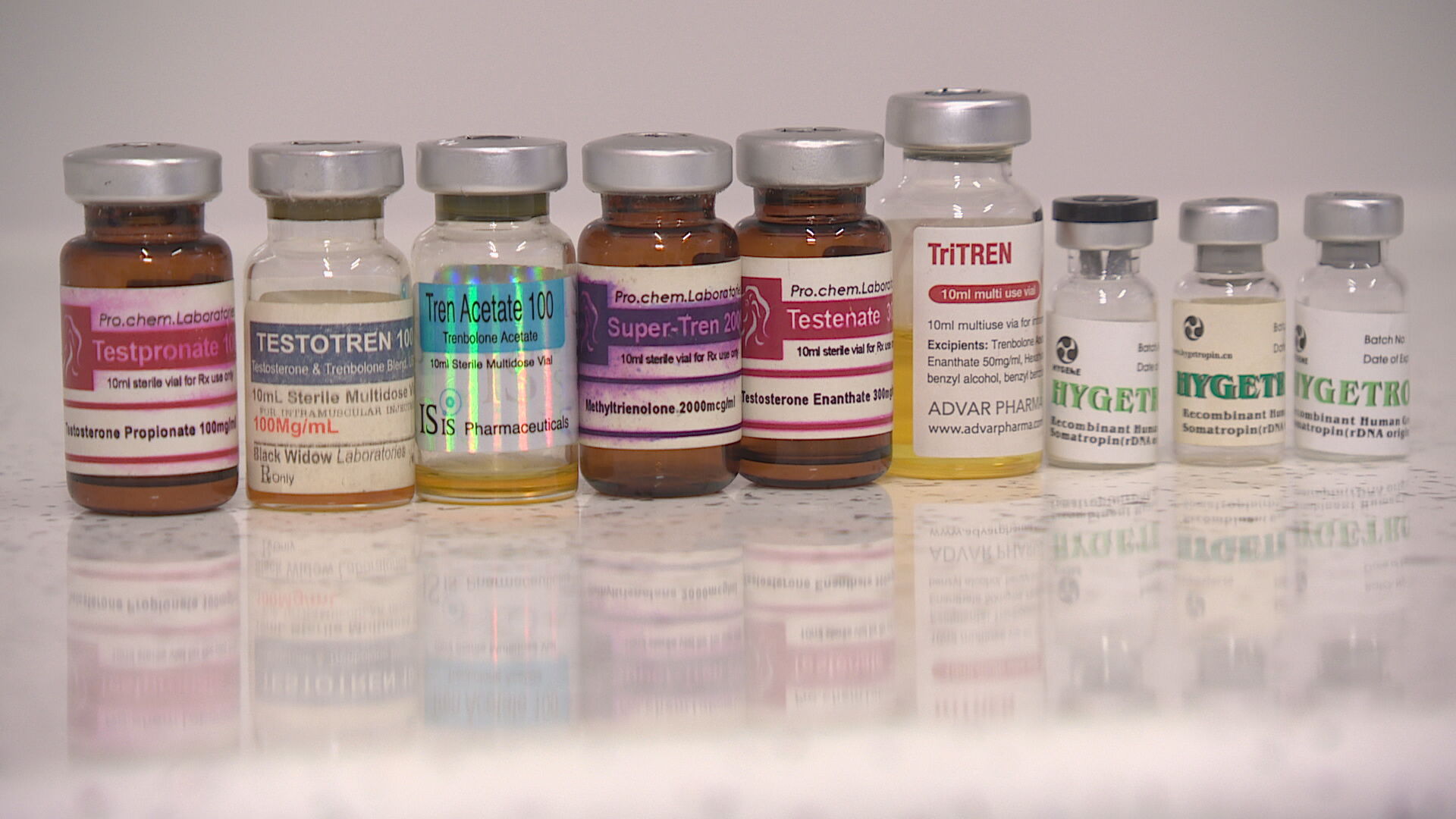 STV News
STV News“TRT is a concern for us – it’s a term that’s creeped in over the last five years,” Mr Campbell said. “Many clients’ doses far exceed what we could expect to prescribe medically for TRT.
“That continuous use brings with it the increased likelihood of more side effects and complications in the long term.”
John said the first signs of potential cardiovascular damage in long-term users of anabolic steroids are emerging in new research – and he fears that’s just the tip of the iceberg.
“A percentage of older clients have been using for the past two decades or so, without any significant breaks.
“Part of the reason there may be so many in that group still using is they may have made a number of attempts to stop, but hitting a steroid crash can be really difficult and [they] may start using again to alleviate those side effects.
“When you think about it that way, is it that much different from any other drug? Probably not.”
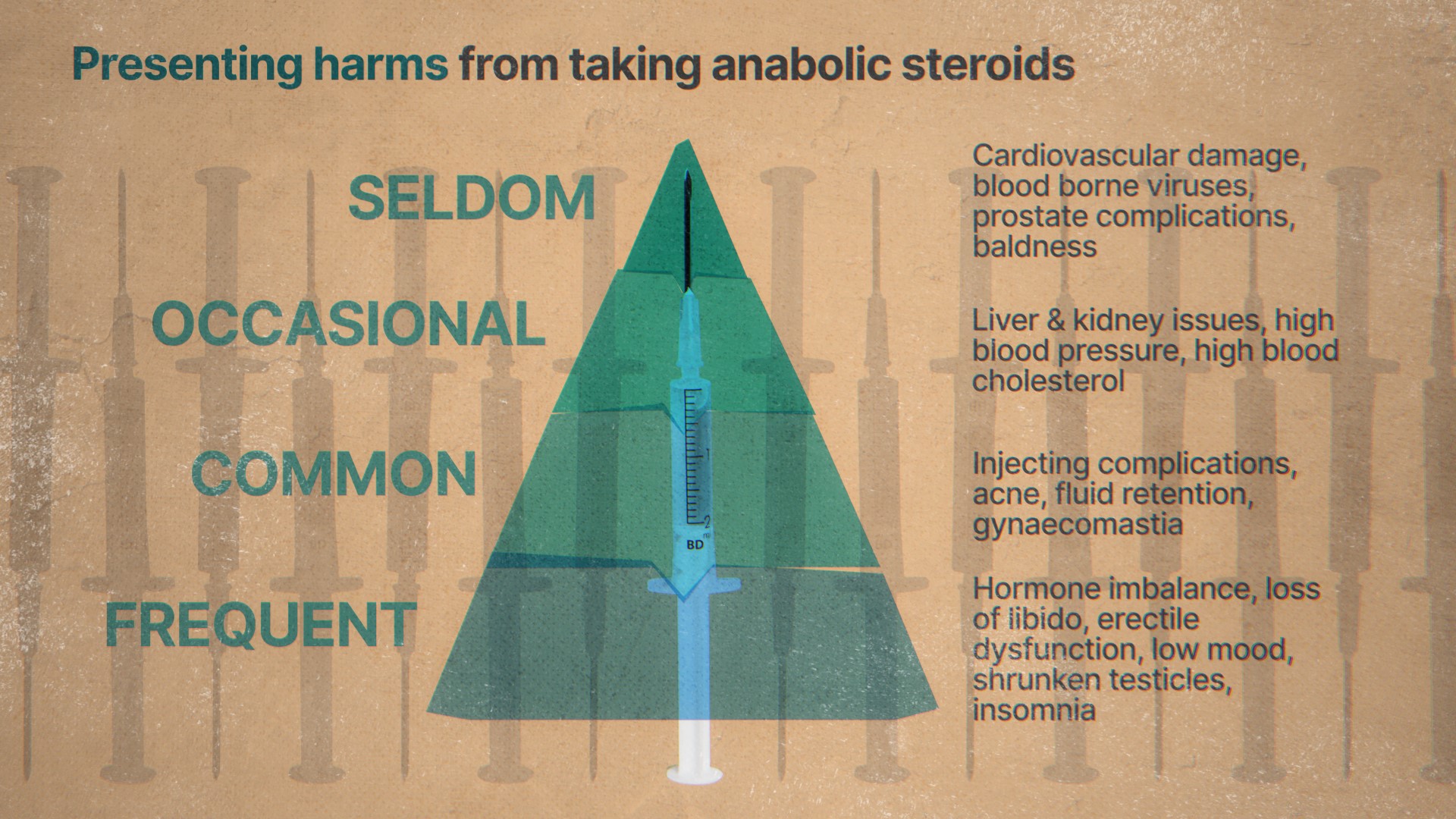 STV News
STV News‘I have no doubt social media is driving people’s expectations’
The largest number of people use steroids for image-enhancing purposes – with Mr Campbell warning social media platforms such as Instagram and TikTok have a significant part to play.
“We do see people coming into the clinic and they’ll show pictures from social media and say ‘my overall aim is to look like this person’. I have no doubt images on social media are driving a lot of people’s expectations.
“Social media has become the main platform for this information. What it doesn’t come with is the real knowledge and highlighting the potential risk it involves.
“People’s expectations seldom meet reality – how hard training has to be, how strict you have to diet, and the reality is steroids play a relatively small part in that.
“We know if we give steroids to people with a muscle-wasting disease, they don’t develop big biceps and triceps.
“They are often looking for something quick to take place and after a month or two, realise it’s hard work.”
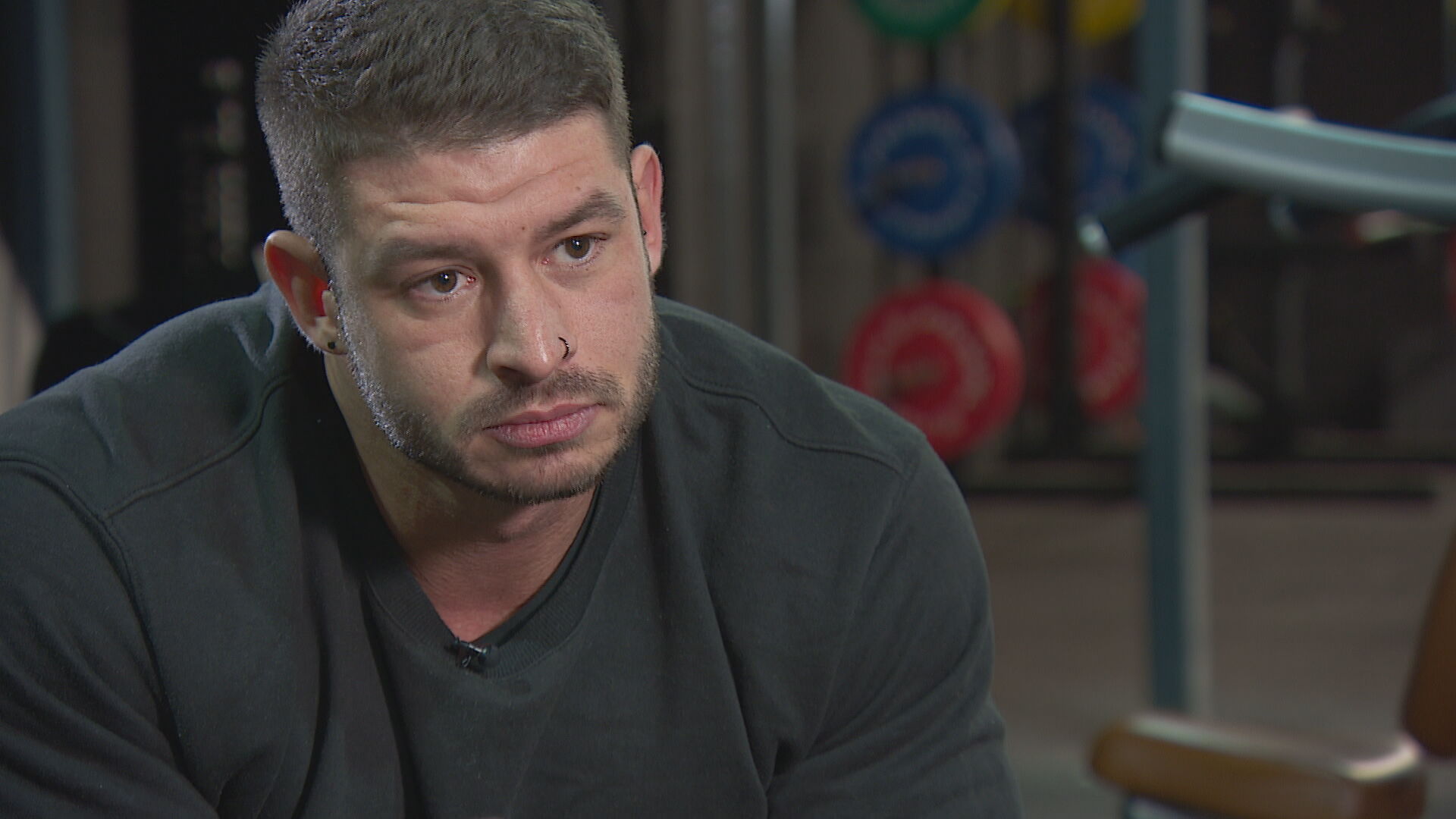 STV News
STV News‘They’re being pushed as a short-cut to get results’
Scott Robertson has been a personal trainer for the last decade.
When he started, a client wanting to use or learn about performance enhancing drugs was the exception – now it’s the rule.
“My first protocol with any client is ‘let’s not even have that as a conversation, at least for now’,” he said.
“I’d make sure they are getting proper nutrition and training intensely, and whether that is something they can do consistently before we can even think of anything additional to that.”
Scott, 28, has been using steroids to enter a bodybuilding competition, having first used them at the age of 17.
He said it’s an “educated risk” that he is willing to take to get stage-ready.
“There are definitely mistakes I’ve made along the way,” he admitted. “I definitely shouldn’t have done it when I was 17 and 18. I was influenced by my mates doing it, guy at the gym recommending it.
“The dosage at the time was more than it should have been as I shouldn’t have been taking anything at that age.
“When I competed, I hired a coach who is very knowledgeable in those areas for support and guidance to ensure I was as healthy as possible.

“Since stopping bodybuilding, I’ve pulled that drug use right back for health purposes.”
Scott has encountered a rise in the number of clients seeking advice about steroids and believes it’s down to the pressures of social media.
“”When I first started as a coach It wasn’t something I was particularly educated on; I wasn’t aware of how frequent it was used in the gym.
“Unfortunately, they may see influencers on social media are recommending them as a short-cut to get results, when they aren’t even doing the basic things they should be doing.
“They’re looking for that easy fix when it’s probably something they shouldn’t even go near.
“Now I’m far more educated. It’s something I’ll coach clients on if they are adamant they want to use it and I can’t persuade them otherwise, I’d rather they did it safely and I’ll coach them through that.”
Scott acknowledged the pressures faced by people like him working in the industry to achieve a certain look to boost their career.
“Male coaches especially may think they need to look a certain way to attract a certain clientele and they may be more tempted to go down this route,” he added.
“I also feel bad for clients getting pushed on to these things when they are not aware of the negative side effects, just so the coach can get a nice wee transformation for their business.”
Scott also raised concerns around people simultaneously using anabolic steroids along with recreational drugs outside of the gym, such as cocaine and MDMA.
“There’s a big rise in this,” he said. “Doses are too high and then combine that with party culture; people are going on nights out and mixing high-risk substances together. Only negatives can really come from that.”
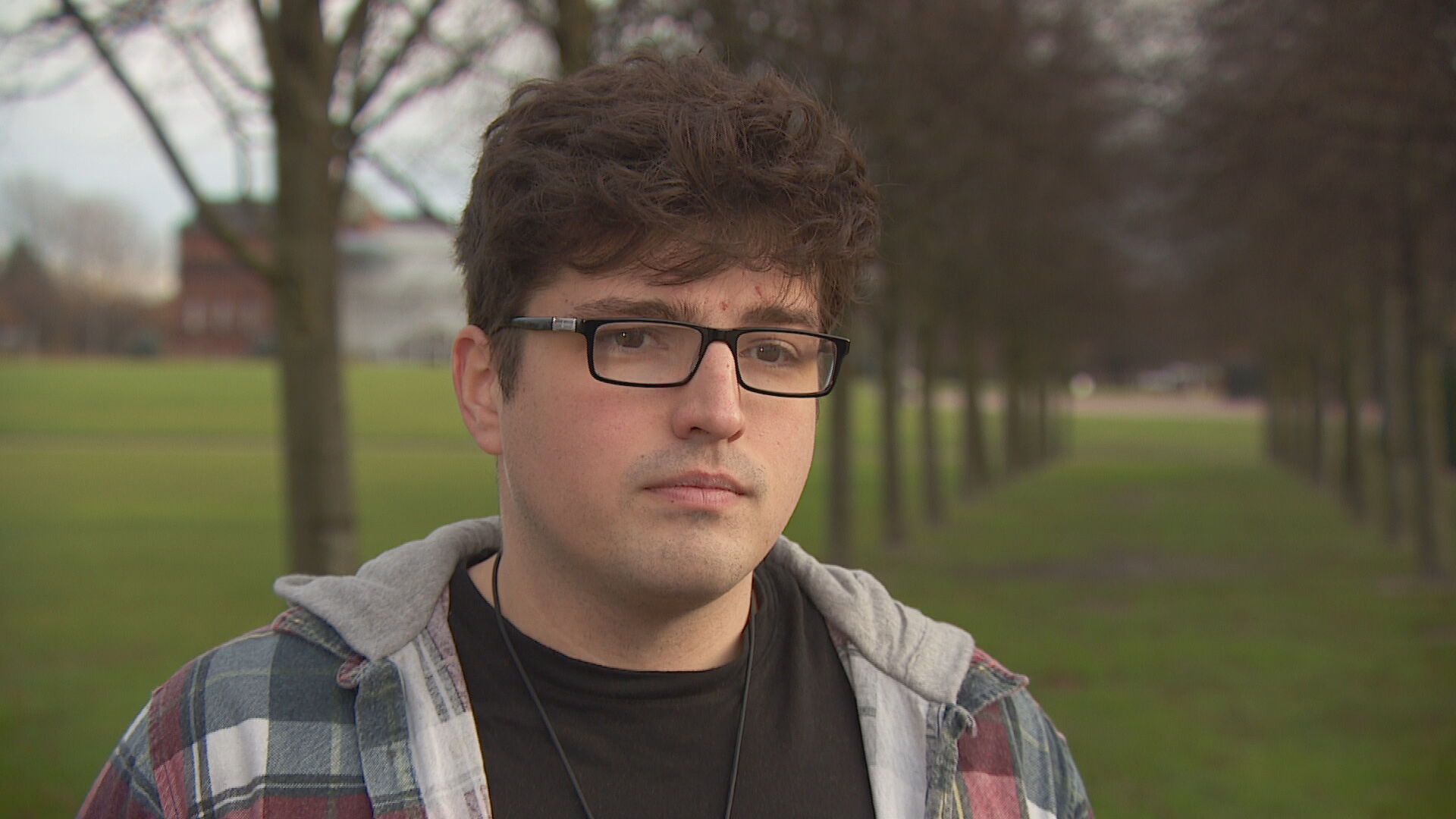 STV News
STV NewsBut there are calls for change after a young man was rushed to hospital with heart complications due to steroid use earlier this year.
The man’s friend, Glasgow Raptors rugby player and trainee fitness coach Cael Scott, has lodged a petition to Holyrood arguing for better education on steroids and other IPEDs among schools and colleges.
He said the prevalence of performance-enhancing drugs among young people, particularly vulnerable to body image pressures, is a “ticking time-bomb” and is even fuelling body dysmorphia among young men.
“My friend didn’t know the downsides,” he said. “There’s a lot of pressure among young teenagers to have the superhero look.
“If you put on Netflix and see a show set in a school, all these 16 and 17-year-olds inexplicably have six packs.
“If you go on social media, influencers with great looking bodies are talking about it saying it’s a great way to build muscle to get the look you want.
“People are not hearing about that darker side; just the positives, the shredded look you get on Instagram.
“I have seen videos on TikTok about the positives of taking SARMs (selective androgen receptor modulators). No one is being held accountable. It’s very much surface level.”
Cael accused the government of viewing the issue as a “low priority” compared with other forms of drug use.
“It’s moving at a glacier pace. They are really failing that section of the younger generation,” he said.
“Young people can go on Reddit for recommendations, order it online and have it delivered to their home without anyone knowing.
“People taking SARMs or steroids need to know how to cycle, get their blood tested, keep their doctor informed if anything goes wrong and what their post-cycle support is like.”
TikTok said content that depicts, promotes or offers the purchase, sale, or trade of drugs and other controlled substances, including anabolic steroids, violates the company’s community guidelines and will be removed from the platform.
The social media firm is also reviewing the videos and accounts flagged to them, adding that it will remove any content that violate their guidelines.
Drugs and Alcohol Policy Minister Elena Whitham said: “We’re developing our public health surveillance data to better understand drug trends and are aware of increasing use of IPEDS beyond elite sport.
“We have funded work through the Scottish Drugs Forum to identify the needs of at-risk groups, including those using IPEDs, and train staff to support them. We have also brought together experts and young people to develop standards we expect local areas to have in place to support young people with their drug use.
“We’re already providing early access to treatment for all those who need it through the development of assertive outreach services and same-day treatment, as well as increasing the capacity of residential rehabilitation services.”
Follow STV News on WhatsApp
Scan the QR code on your mobile device for all the latest news from around the country


